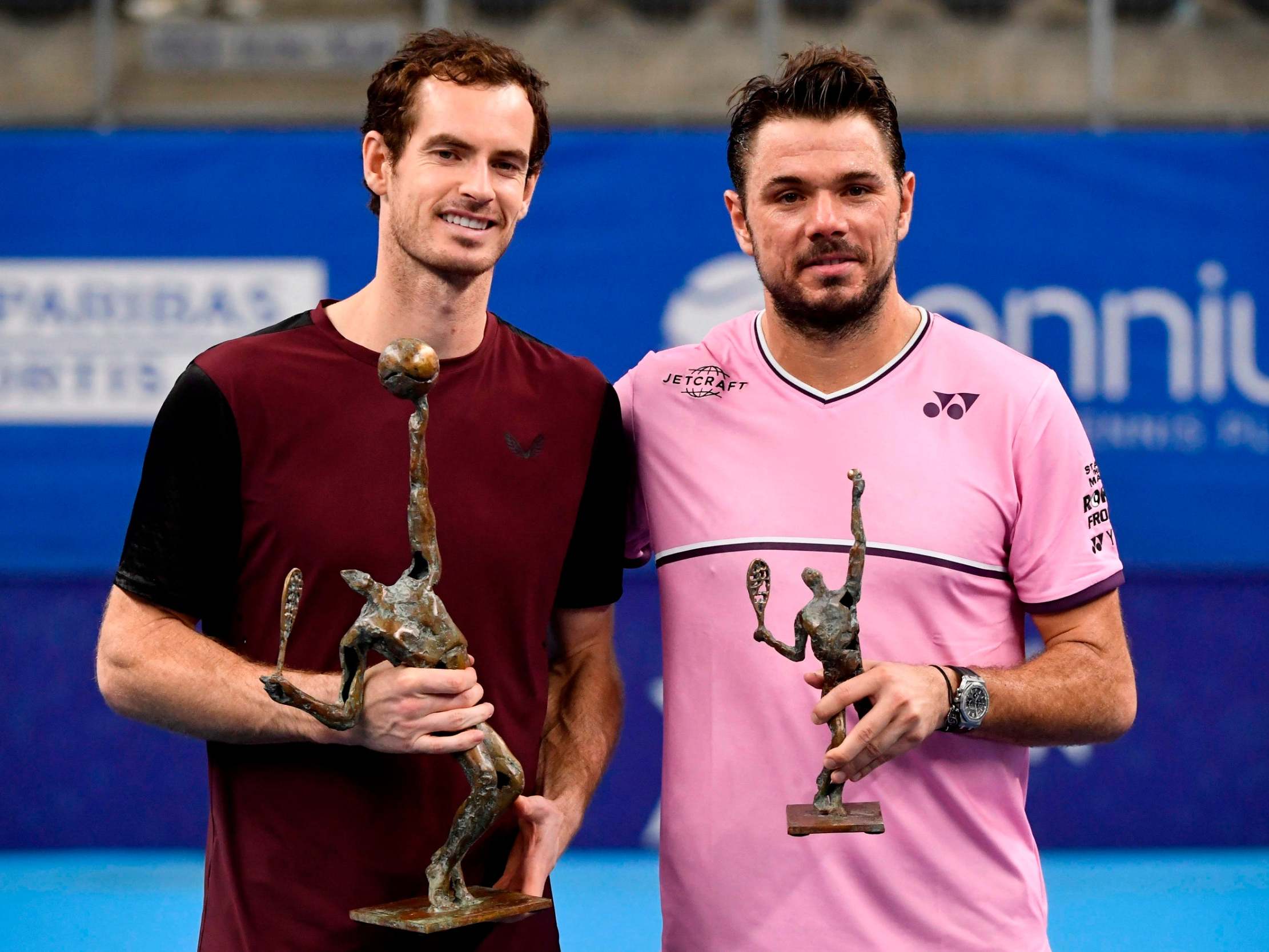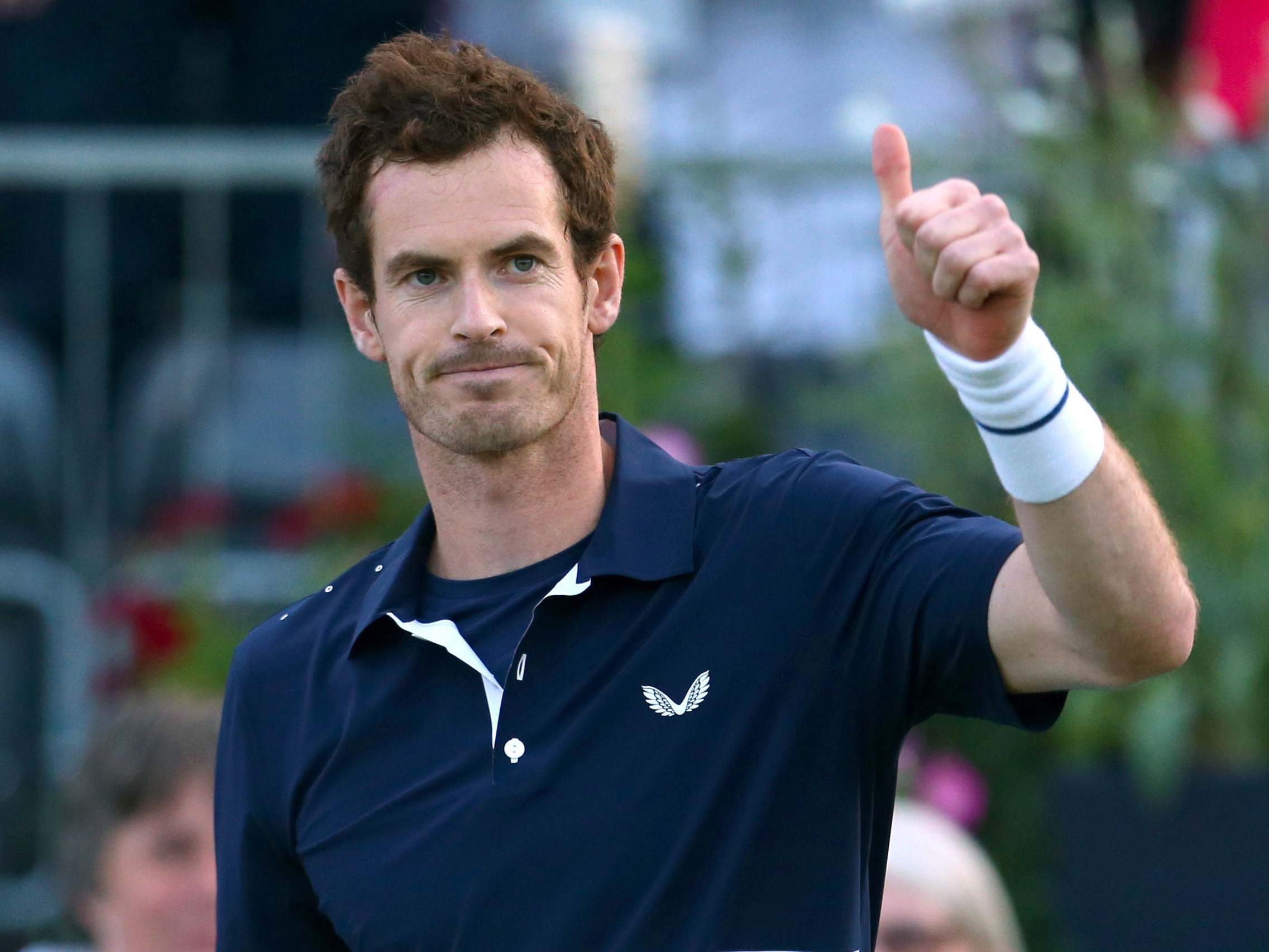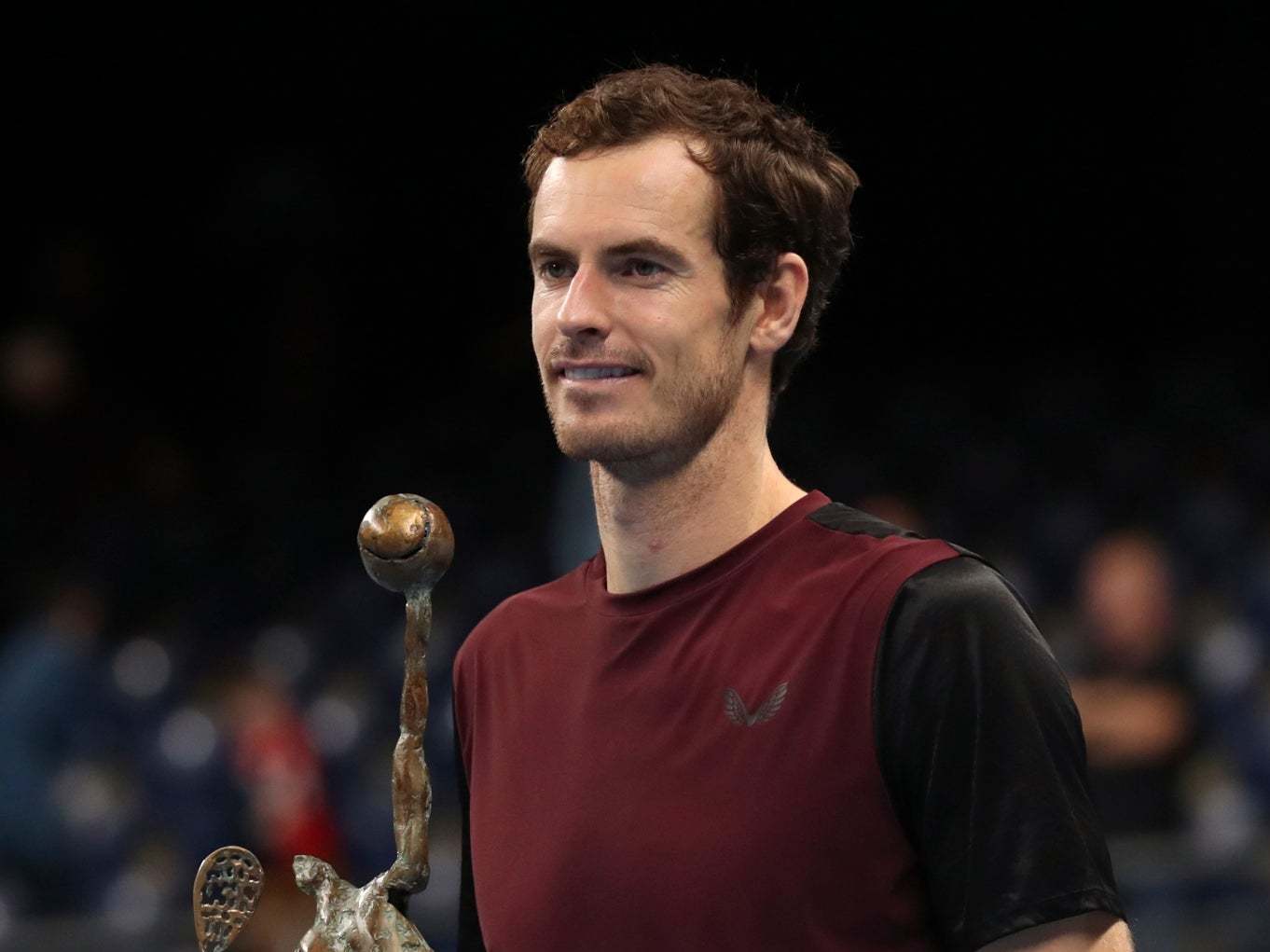The Independent's journalism is supported by our readers. When you purchase through links on our site, we may earn commission.
Andy Murray opens up on baby Teddy, the temptation of chocolate biscuits and long road to Melbourne
The Scot admits the arrival of his third child has seen him put on weight as he begins preparation for Australian Open
Teddy Barron Murray is barely a fortnight old, but Andy Murray’s first son has much to answer for. The 32-year-old Scot reckons his third child is partly responsible for the fact that he recently tipped the scales at 88.5 kilos (nearly 14st), which is 4.5 kilos (about 10lb) above his normal playing weight and the heaviest he has ever been.
“Evenings were the issue,” Murray said in London on Tuesday as he reflected on a 12-day period when he “literally did nothing” following his triumph at last month’s European Open in Antwerp. “The new-born has been going to bed at seven and sleeping for a three-hour period. My wife would sleep upstairs and get a period of good sleep in before the baby would wake up.
“I’d be on my own downstairs eating chocolate biscuits and stuff. There was also Halloween, our second daughter’s birthday party and my sister-in-law also had a birthday, so there was lots of cake and junk. With no training, that’s not a good combination.”
Murray, who was speaking at the launch of his new AMC tennis collection by Castore, said that in retirement he hoped he would not follow the example of his former coach, Ivan Lendl.
“He’ll probably kill me for saying this, but I always said I don’t want to end up with what happened to Ivan,” the two-time Wimbledon champion said with a smile. “If you put that in I know I’ll get a message from him tomorrow. When he was playing he was in great shape and very thin. And when he stopped things went south, so I need to avoid that.”
As for the names of their third child, Murray said that his wife, Kim, had been keen on Teddy, while Barron, which is the former world No 1’s own middle name, has been a tradition in his family. “I don’t actually love the name,” he said. “My dad’s middle name was Barron, his dad was Barron and so was my granddad’s dad, so I kept that.”
Murray said that life had been “busy” since Teddy’s arrival but was happy to report that everyone was in good health. “We’ve got three children under four now and two dogs, so you’ve got to keep an eye out all the time, but it’s been good, sleeping fine,” he added.
Sophia, Murray’s first daughter, will be four in February, while Edie has just turned two. Asked if they had watched on TV when their father won his first title for more than two and a half years in Antwerp last month, Murray said: “I think they were having dinner at Wagamama’s during the final, so I don’t think they were watching. They’ve seen me on the tennis court on TV over the last couple of months, but I’m not sure they’ve got the patience to sit and watch a tennis match.”

The triumph in Antwerp, combined with some good results during a three-week spell in Asia, underlined Murray’s remarkable recovery since he underwent a major hip operation in January. He is feeling no pain in his hip, though he admitted that he would have to see how other parts of his body cope with his return to matches over the best of five sets at the Australian Open in January.
“I’m not worried from the hip’s perspective as I’ve had zero issues with it so far,” he said. “I don’t anticipate that playing an extra 45 minutes or an hour will be bad for my hip. I’ll see how the rest of my body responds when I’m out there [in Australia]. My physio has always been more positive about me playing Grand Slams than playing in a tournament when you play five days in a row.”
Murray is currently recovering from an elbow problem which troubled him during his recent run – during which he won nine out of 12 matches in the space of four weeks – but is set to play in next week’s Davis Cup Finals in Madrid before taking another short break.

After that the hard work will begin. He is planning three weeks of pre-season training, up to 14 days of which will be in Miami. After Christmas in Scotland, he will fly to Sydney, where he will play in the new ATP Cup before heading to the Australian Open in Melbourne.
Murray said his recent form had given him confidence that he can compete at the highest level but stressed that he needed to be careful with his tournament schedule.
“If I plan at the beginning of the year playing three tournaments, let’s say, in the first couple of months but I only win one match in each of those tournaments, then I could add a tournament,” he said. “But if I end up doing really well maybe I play a tournament less, which in the past I wouldn’t have done. I would have had my schedule and said: ‘Right, I have to play in Indian Wells and Miami because that’s what the tour says, they’re mandatory events and you must play them.’ I’m going to do it very differently now.”

Murray said his main goal for 2020 was a simple one: to remain healthy. “I played tennis as a kid and through my professional career because I really loved playing,” he said. “Being healthy allows me to do that.
“It’s nice to be able to win big competitions and have a high ranking, but actually the reason why I’m playing is because I love it. I need to remember that, so if I’m 30 in the world or 70 in the world but if I’m still enjoying it, still enjoying the preparations, still training and all of that stuff and I feel competitive, then that would be success for me.
“But I need to remember that. It’s sometimes difficult when you start playing, competing and losing matches. You really want to do better. But that would be success if I could stay healthy and on the court.”
Join our commenting forum
Join thought-provoking conversations, follow other Independent readers and see their replies
Comments
Bookmark popover
Removed from bookmarks